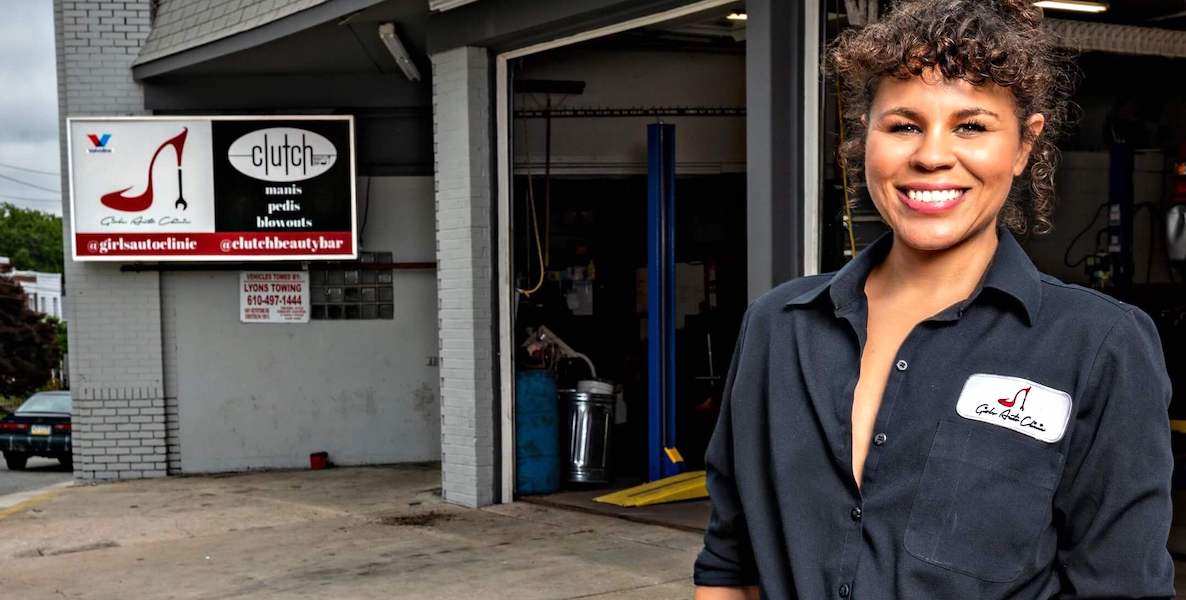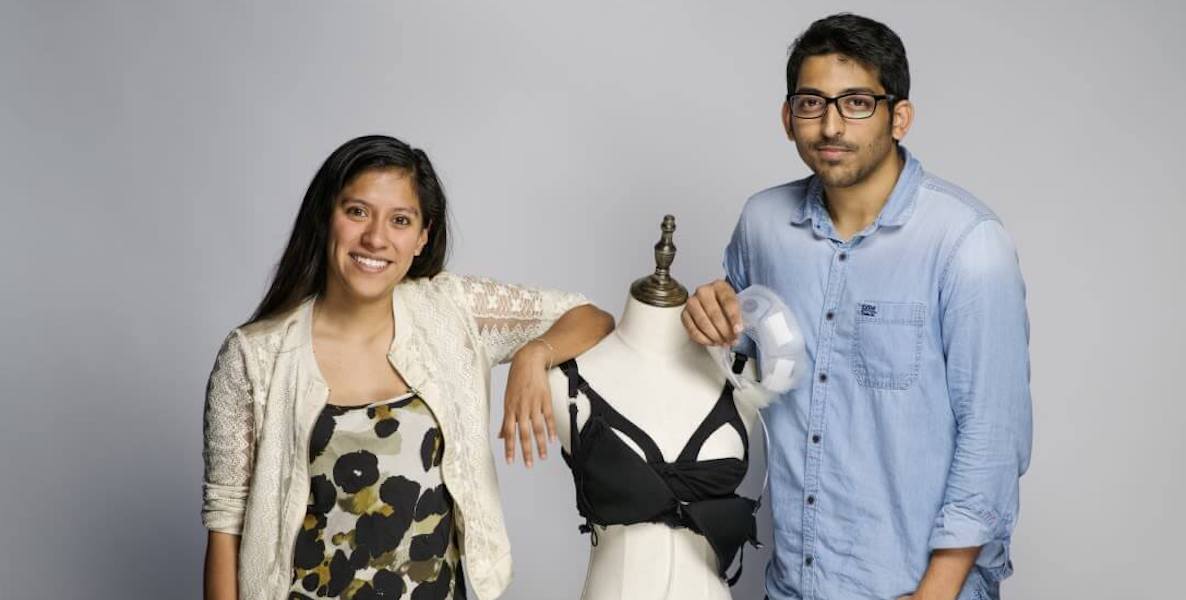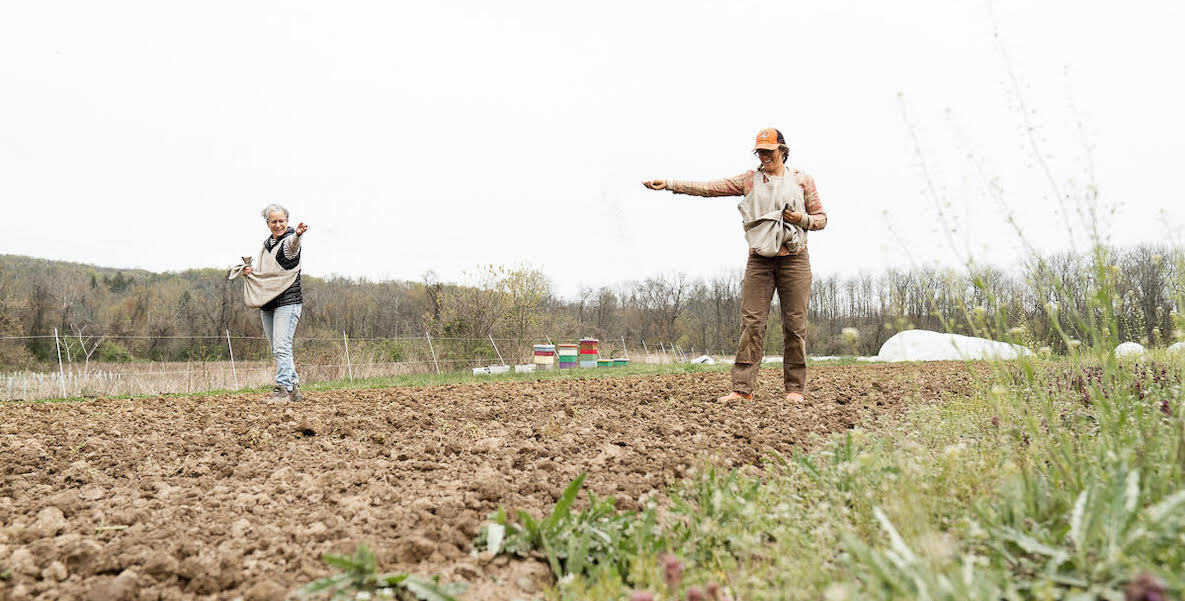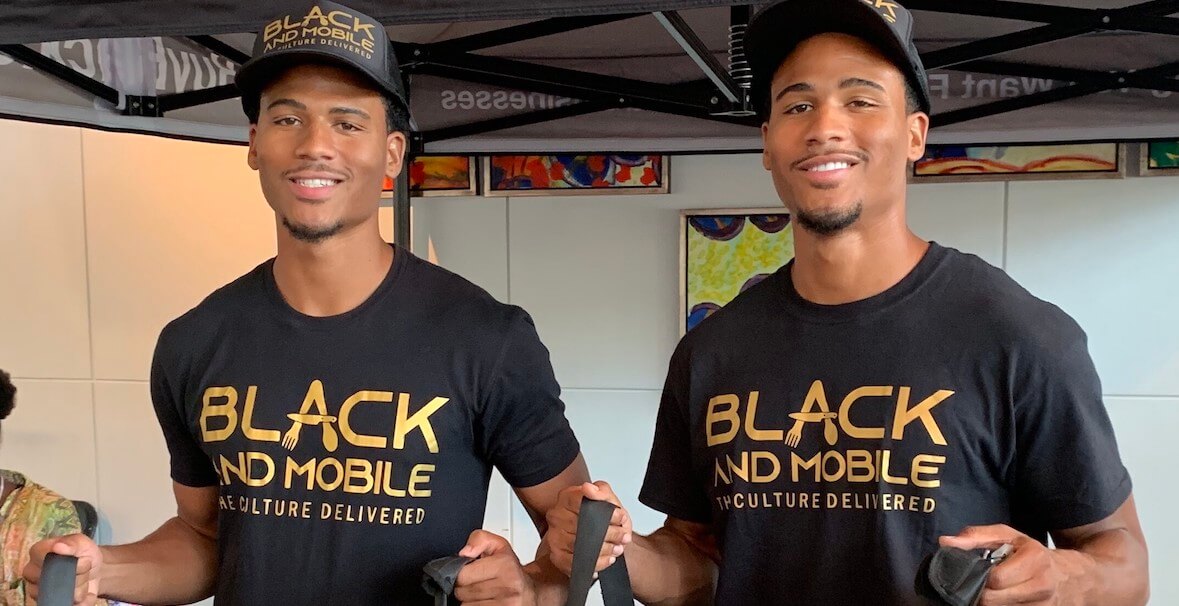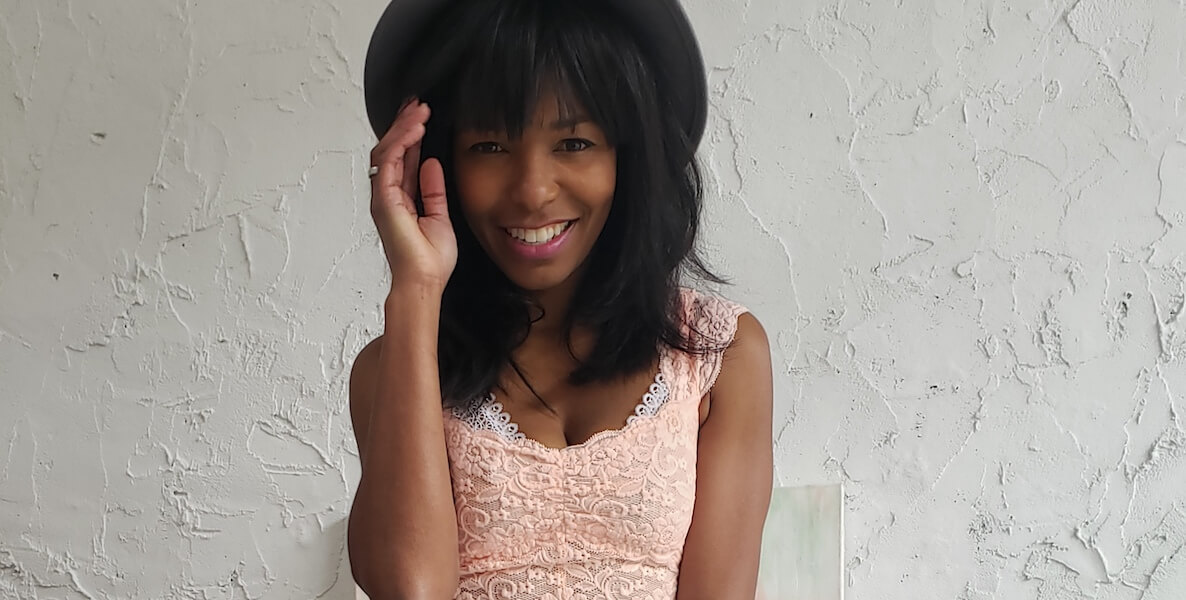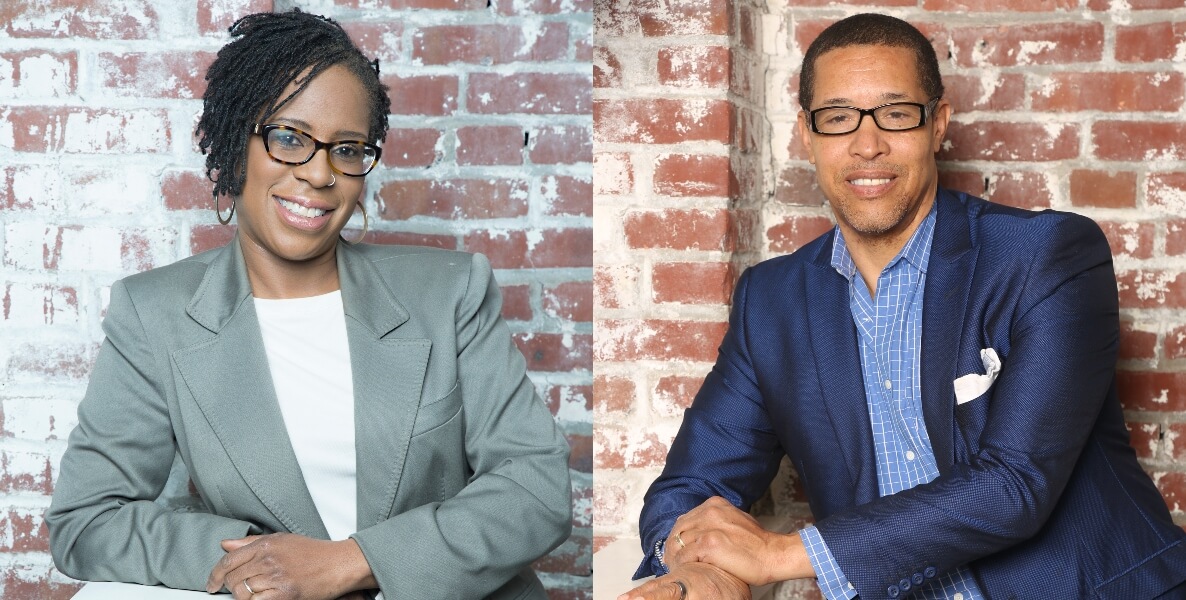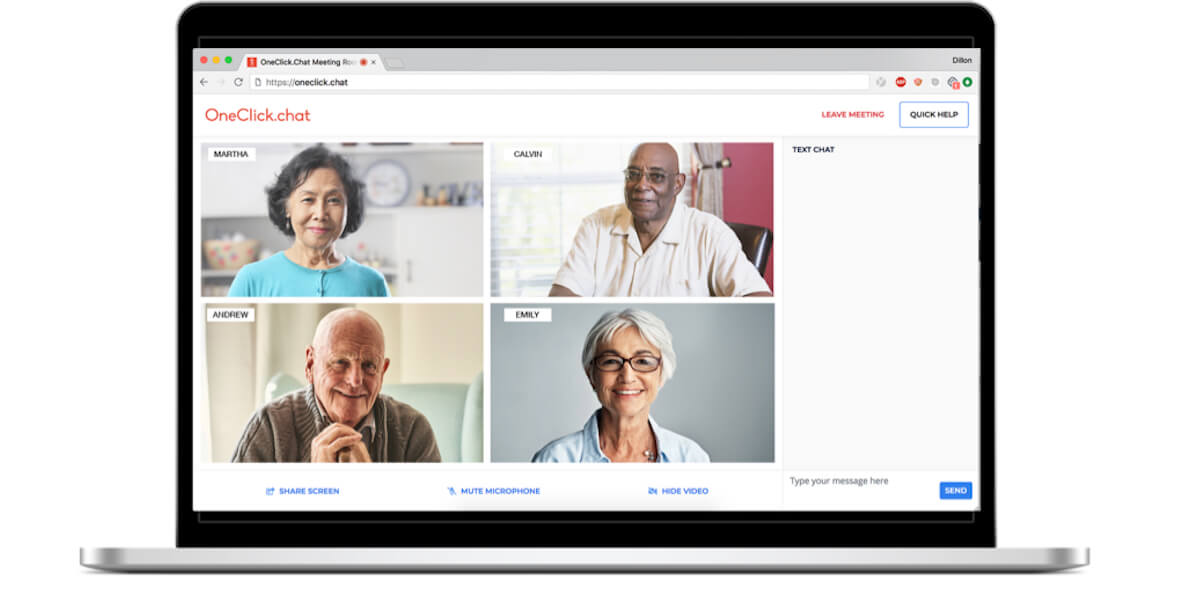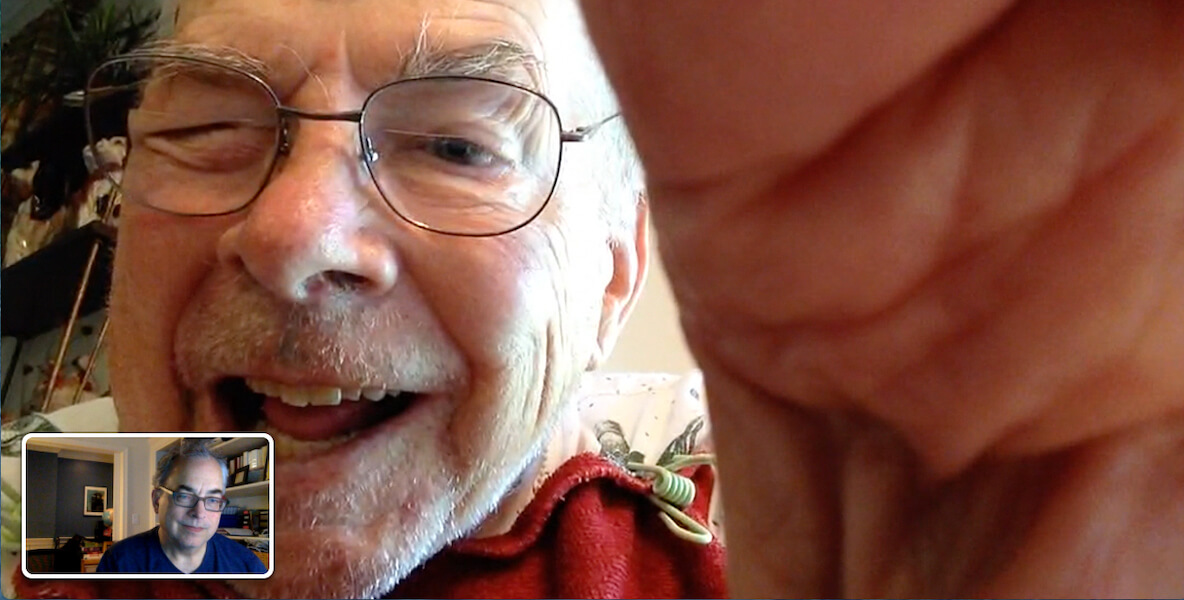![]() In normal times, Alan Gibson, co-founder and chairman of the video chatting platform OneClick.chat, loved long weekends. He would host friends and laugh and chat with them over dinner.
In normal times, Alan Gibson, co-founder and chairman of the video chatting platform OneClick.chat, loved long weekends. He would host friends and laugh and chat with them over dinner.
After a lifelong career in advertising, he remained an imaginative and active retiree, writing novels in his spare time and continuing to engage creatively with others. He doesn’t live alone and wasn’t struggling with loneliness, but as his friends parted, he found that they often were.
“A few years ago, a friend of mine had been spending a long weekend with us at the house and when we were saying our goodbyes, she said what a shame it was that she’s going to go back home,” Gibson says. “That she’s gonna miss all the conversation and the laughs and the eye contact.”
![]() After his friend left, Gibson started researching the problem. As an advertiser, he’d long been following demographic trends and realized that there might be a huge swath of older adults who were grappling with social isolation.
After his friend left, Gibson started researching the problem. As an advertiser, he’d long been following demographic trends and realized that there might be a huge swath of older adults who were grappling with social isolation.
Loneliness and social isolation are situations familiar to many older adults. In the U.S., 27 percent of adults aged 60 and older live alone, according to the Pew Research Center. For comparison, the 130 other countries and territories studied had about 16 percent of adults over 60 living alone on average and some countries had rates as low as 5 percent.
To help address these issues, Gibson, with his friends Dillon Myers and Jim Matthews, created OneClick.chat, an online video chatting and live events platform specifically geared towards older adults.
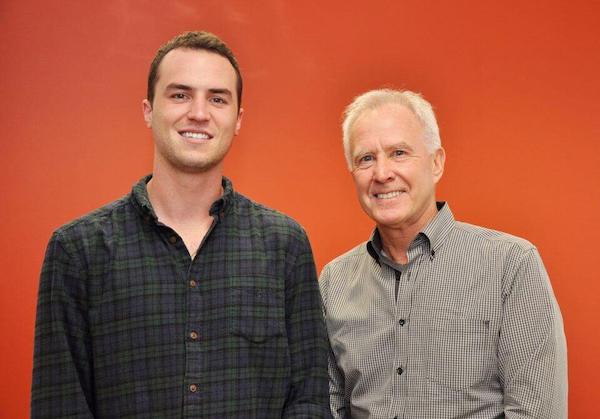
The Philadelphia-based company aims to fight social isolation amongst older people by providing them with a chance to connect with old friends and meet new people. Gibson serves as the chairman, Myers as CEO and Matthews as CFO.
Now four years old, the company has been awarded $1.8 million from the National Institute of Health (NIH) Small Business Innovation Research grant program to continue improving the platform and researching how social connection via video chat platforms can help reduce loneliness and mild cognitive impairment in older adults.
Putting New Technologies Into the Hands of Older Users
The original idea for the company was one that prioritized connections for older adults over dinnertime. The online video chatting platform, initially called Potluck, would allow people to connect with strangers over common interests.
Gibson and Myers hoped that it would also foster intergenerational friendships like the one they developed after meeting at a Washington and Lee University alumni event.
After meeting, the two had lamented over the fact that older people and younger people often don’t form intergenerational friendships. Myers, who graduated from the school in 2014, had many different experiences than Gibson, who graduated in 1970. They remained in touch, through phone calls and video chats of their own and kicked around the idea of starting a company together.
“People are sitting there and they just haven’t had a conversation with anybody for so long,” Gibson says. “It’s literally killing them.”
When they initially started hosting potluck dinners over video chat to test the idea, however, they noticed a different problem. Older adults struggle to use popular video chat platforms. “When you think of all the social media platforms and everything like that, they’re designed for a younger user,” Myers says. “Older adults are underserved when it comes to those kinds of platforms and technologies.”
Gibson and Myers decided to pivot to address this gap. Together, they combined their separate life experiences—Myers’ as a former Venture for America fellow who’d worked in tech companies his entire career, and Gibson’s as a former ad man and older adult himself—to create a video chatting service suited to the needs of older adults and designed to help them combat social isolation.
![]() “I’d been sitting around trying to figure out what to do with this idea because I’m not a tech person,” Gibson says. “I wouldn’t know the first thing about creating this. So enter Dillon, who has all the tech savvy and the resources and the history with it. It was really the perfect kind of marriage.”
“I’d been sitting around trying to figure out what to do with this idea because I’m not a tech person,” Gibson says. “I wouldn’t know the first thing about creating this. So enter Dillon, who has all the tech savvy and the resources and the history with it. It was really the perfect kind of marriage.”
The two joke that they have 100 years of wisdom and experience when you combine their ages. Intergenerational leadership, they say, is key for the company which tries to put new technologies into the hands of older users. “It’s made us a better company and made us work better. It’s made us both grow in different ways,” Gibson says. “The assumptions about what a boomer is and what a millennial is don’t work for us at all.”
The company initially raised $250,000 in the fall of 2017 to work on its platform, with two of its first investors coming from the alumni network of Washington and Lee. Then in 2018, they received $150,000 in funding from the NIH to begin researching how their platform could be used to help older adults with researchers at the University of Illinois Urbana-Champaign. This second grant will allow them to complete phase two of that research and to launch a new facet of their product aimed at nursing homes in the U.S. this October.
The User Experience
When you first log in, OneClick.chat may seem like any other video chat platform. It has features like a mute button and a chat box. Each person’s video appears on the screen in a little square.
Unlike other platforms, OneClick.chat’s features are more obviously placed and easy to access. Its chat feature dominates the right part of the screen while the videos form little tiles to the left. Mute and screen share buttons are also prominent on the lower half of the screen and they don’t disappear as the conversation goes on, making them easy for seniors to locate at all times.
Meeting scheduling is also simpler. Rather than create a new meeting for each event, OneClick.chat users get a unique URL that allows other users to access their meeting room. The link never changes and it doesn’t require people to download anything or create an account to use the service, unlike Zoom and the Microsoft-owned Skype. Instead, users can host up to 12 attendees using only the internet. Users of the service pay $15 a month for their meeting rooms. Currently, they have 50,000 users in over 30 countries.
Having only one, unchanging unique link for every meeting allows seniors to bookmark the link to their meeting room and not worry about finding and punching in new meeting codes for each gathering they attend. If they’re struggling to get on, a family member or friend can just text them the link and all they have to do is click on it to enter the video chat.
“We didn’t want anything to look like a barrier or feel like a barrier,” Gibson says.
Reducing the number of steps in the process can also make it easier for older adults who have mild cognitive impairment, a disease OneClick.chat is also hoping to address through their research.
During phase two of the research, they will work with the University of Illinois Urbana-Champaign to conduct a large randomized clinical trial to see how using the platform can improve health outcomes and feelings of social isolation amongst older adults.
They’ll be working with Dr. Wendy Rogers, director of the Human Factors and Aging Library, and Dr. Raksha Mudar, director of the Aging and Neurocognition Laboratory—two researchers who have long studied the effects social engagement can have on the health of older adults.
Myers and Gibson became connected with the pair after hearing Rogers speak during an NPR interview on her research and Myers reached out to her because he thought that their interests aligned with the company’s goals.
“In general, technologies are not designed with older adults’ capabilities and limitations in mind. They may not have relevant experience with the technology category and often will need additional support and instruction to get started,” Roger says. “Through an iterative process of evaluation and testing with older adults and updates and redesign of the system, OneClick is easier for them to use and thus more likely to be integrated into their everyday routines.”
Recognizing and Fighting the Effects of Social Isolation
Research has already shown the negative effects social isolation can have on the health of older adults. More than 8 million adults aged 50 and older are affected by isolation, according to the AARP Foundation’s Connect 2 Affect arm.
The foundation reports that the negative health effects can be as bad as smoking 50 cigarettes a day and loneliness can increase an older adults risk for cognitive decline. Studies have found that prolonged social isolation can increase the risk of developing dementia by as much as 20 percent.
“People are sitting there and they just haven’t had a conversation with anybody for so long,” Gibson says. “It’s literally killing them.”
In the U.S., 27 percent of adults aged 60 and older live alone. For comparison, the 130 other countries and territories studied had about 16 percent of adults over 60 living alone on average and some countries had rates as low as 5 percent.
OneClick.chat’s research will show whether their platform can stave off some of the negative effects of social isolation by helping older adults maintain connections and meet new people.
In addition to studying how older adults use the platform’s meeting rooms to connect with friends and family, the company will also be testing a new product for hosting live events in partnership with nursing homes across the country in October.
This new product would allow older adults to attend a virtual event, like a history lecture or a wellness class and then break into smaller meetings afterwards with other people who attended. It’s virtual component will allow nursing homes and senior centers to recreate the in-person, social events that had to be shut down when Covid-19 swept the nation.
“When it comes to senior living organizations and those organizations that focus on older adults, those aren’t going to open up again until there’s a vaccine,” Myers says. “The effects of this are going to hit older adults the hardest and the longest.”
“This is something they can do every day, basically, and they need that,” Gibson adds.
![]() The ability to help older adults make new connections as well as remain in touch with old friends, is part of what makes Rogers excited about the platform’s potential.
The ability to help older adults make new connections as well as remain in touch with old friends, is part of what makes Rogers excited about the platform’s potential.
“OneClick provides the potential to link older people with shared interests, outside of their immediate network of connections, thereby broadening their opportunities for social engagement that are otherwise limited by geography or circumstance,” she says. “Overall, we hope to provide socially enriching experiences for older adults that will enhance their social connectedness and reduce feelings of loneliness.”
The new grant will allow the platform to add to their seven-person team in Philadelphia. They hope to hire one to two more people within the next two years. As the year goes on, they’re also looking ahead to the holidays when many older adults will be unable to travel to see family for possible ways their platform can provide virtual connection.
“We’re looking at November and December because these are to be holidays unlike any other,” Gibson says. “It’s going to be especially hard on people and so we’re going to try to do something that will help, you know, in whatever way we can.”



